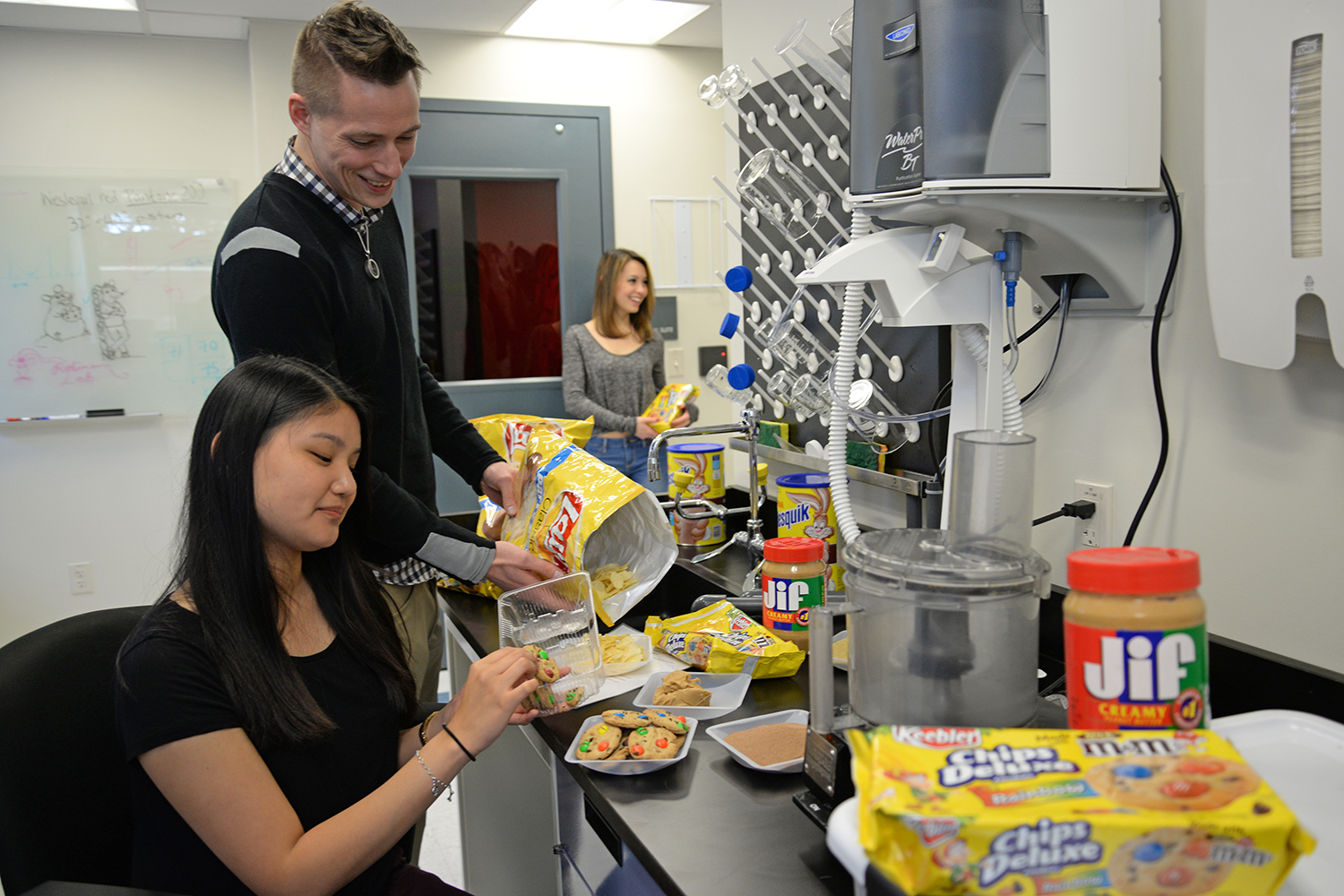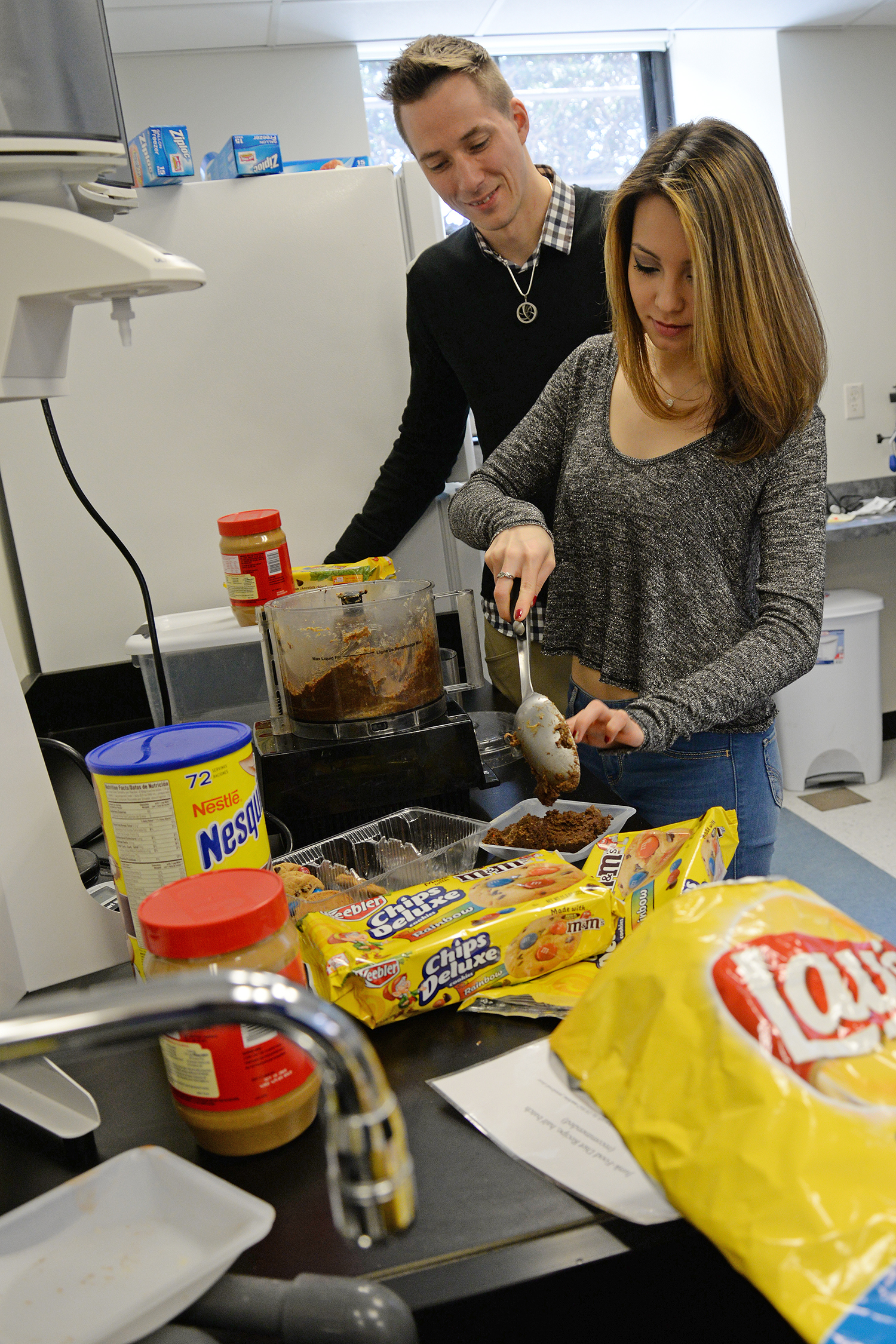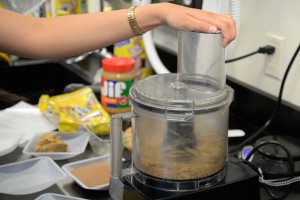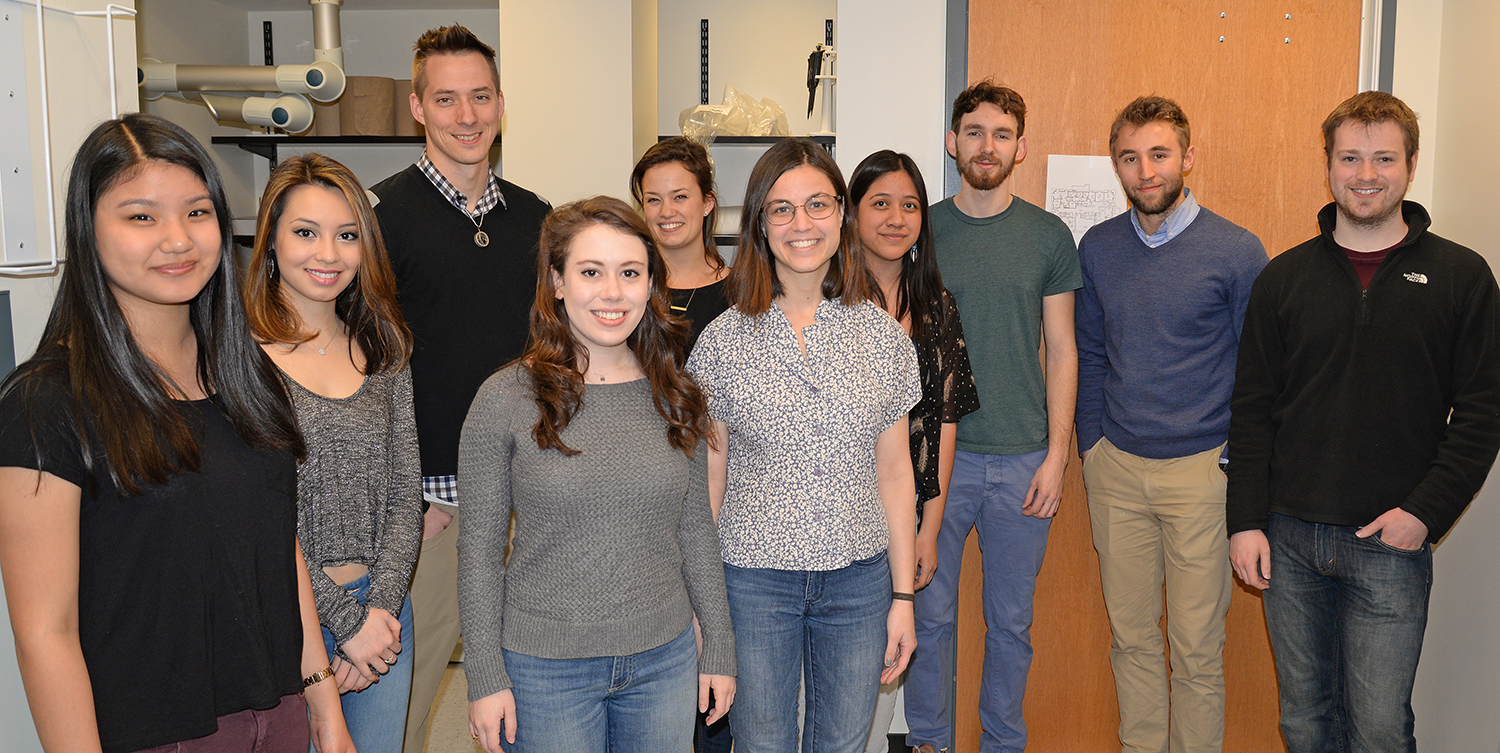Robinson Studies Individual Differences in Reactions to Junk Food


Mike Robinson, assistant professor of psychology, assistant professor of neuroscience and behavior, and his students are interested in what makes individuals react differently when they catch a whiff of freshly-baked brownies or another sugary treat.

These Pavlovian cues associated with junk food can trigger cravings to eat and increase the amount of food consumed. People who are more susceptible to the motivational effects of these cues may have a higher risk for over consuming readily available junk food and becoming obese. Furthermore, the overconsumption of junk food may itself heighten attraction to food cues. But what causes some people to be more susceptible than others?
Robinson, together with colleagues at the University of Michigan, explores these issues in an article titled “Individual Differences in Cue-Induced Motivation and Striatal Systems in Rats Susceptible to Diet-Induced Obesity,” published in the March 12 edition of Neuropsychopharmacology. Read the abstract here.
The researchers introduced a junk food diet (a mash of potato chips, chocolate chip cookies, peanut butter, and chocolate milk powder) to rats to study whether there were pre-existing and/or diet-induced increases in attraction to cues for junk food, and motivation to seek out the food. They found that prior to gaining weight, the rats that would go on to become obese with the junk food diet showed a greater attraction to food cues. After being exposed to the junk food diet and gaining excessive amounts of weight, those rats began treating food cues as a reward in of themselves, and were more willing to work to obtain them.

Interestingly, overconsumption of junk food was not due to a predisposition to excessively liking sweet tastes. On the contrary, chronic consumption of a junk food diet blunted these animals’ hedonic pleasure responses to increasingly sweet tastes, as if sweetness had lost much of its appeal.
These effects on motivation and pleasure were reflected by changes in receptor levels in the brain. Most notably, certain areas of the brain responsible for generating motivation were affected in all animals given the junk food diet, whether they became obese or not. This finding suggests that repeated consumption of junk food, even in the absence of excessive weight gain, can render the motivation systems of the brain more sensitive to rewards and their cues in almost anyone.
According to Robinson, these results help shed light on how individual differences influence the impact of junk food on our reward systems.
“These results point to a dissociation between ‘liking’ and ‘wanting’ that occurs with repeated consumption of junk food, much like what is seen in the development of drug addiction,” he said. “Our findings emphasize the role played by food cues in making us ‘want’ more food, especially in a world bombarded by food advertisement campaigns for ever more palatable foods.”


